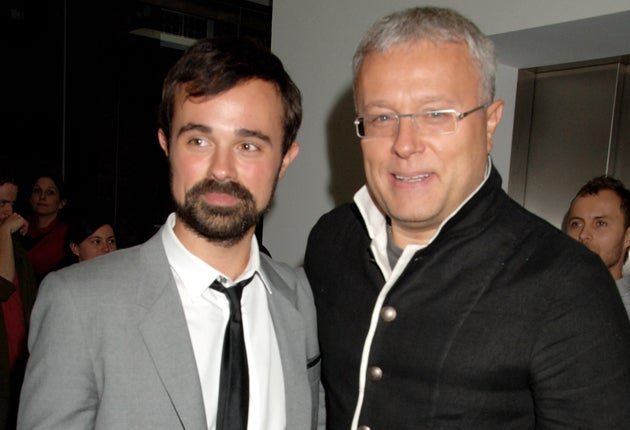Russian owners decide to give away Standard
Audacious gamble sees London's evening paper converted into freesheet

Your support helps us to tell the story
From reproductive rights to climate change to Big Tech, The Independent is on the ground when the story is developing. Whether it's investigating the financials of Elon Musk's pro-Trump PAC or producing our latest documentary, 'The A Word', which shines a light on the American women fighting for reproductive rights, we know how important it is to parse out the facts from the messaging.
At such a critical moment in US history, we need reporters on the ground. Your donation allows us to keep sending journalists to speak to both sides of the story.
The Independent is trusted by Americans across the entire political spectrum. And unlike many other quality news outlets, we choose not to lock Americans out of our reporting and analysis with paywalls. We believe quality journalism should be available to everyone, paid for by those who can afford it.
Your support makes all the difference.For the first time since it was founded in 1827, the London Evening Standard is to be given away free of charge on the streets of the capital and in the city's schools, universities and offices.
The radical change in business strategy represents a major gamble by Alexander Lebedev, the Russian billionaire who acquired London's only paid-for evening newspaper earlier this year, when he bought a majority shareholding for £1 from Associated Newspapers, publishers of the Daily Mail. The plan, which comes into effect on 12 October, involves more than doubling the distribution of the paper to 600,000 and attempting to recover the lost circulation revenue through increased advertising.
In an editorial published in yesterday's evening edition, Mr Lebedev pledged his commitment to supporting quality journalism in spite of the decision to give the paper away. "An essential fabric of a free and democratic society is high-quality journalism. It acts as a deterrent against corruption and is a way to highlight what is beneficial and worth celebrating," he said. "The Standard has been producing exceptional journalism since 1827 and that is not going to change under my ownership."
The news is the latest dramatic development in an evening newspaper war that has continued in London for more than three years. It began with Rupert Murdoch's announcement in 2006 that he would be launching thelondonpaper, a freely distributed title, dependent on advertising revenue.
Associated Newspapers, then owner of the Standard, launched its own free paper in response, London Lite. The streets of the capital were transformed as vendors dressed in mauve and purple competed to place copies in the hands of Londoners as they made their way home from work. The Standard saw circulation undermined by the new arrivals but attempted to remain aloof from the battle by celebrating the quality of its journalism and maintaining its cover price.
When the heavily loss-making thelondonpaper ceased production last month, amid pronouncements from Mr Murdoch that he wanted his newspapers online and in print to be charging for content, it was thought that the free paper war was over. Yesterday's announcement that the Standard, which boasts high-profile writers such as Simon Jenkins, Brian Sewell and Mihir Bose, will be given away creates the prospect of a new skirmish. Associated's London Lite, which receives stories and articles from the Standard, is now in competition in the free market with Lebedev's paper, in which Associated has retained a 24.9 per cent stake. Associated said yesterday that production of the London Lite was still "business as usual".
The Standard's move to a free model will be watched with interest from across the regional and national press, where circulations are in widespread decline but advertising revenues are also in recession. Sources at the Standard say advertising income has improved in recent weeks to levels above those of last year.
Andrew Mullins, the Standard's managing director, said that giving the paper away would give the paper a far greater readership in the capital than national titles. "There are so many competing distractions to potential readers, particularly with new technologies," he admitted. "Being a quality newspaper with large scale and reach should transform our commercial fortunes."
Join our commenting forum
Join thought-provoking conversations, follow other Independent readers and see their replies
Comments